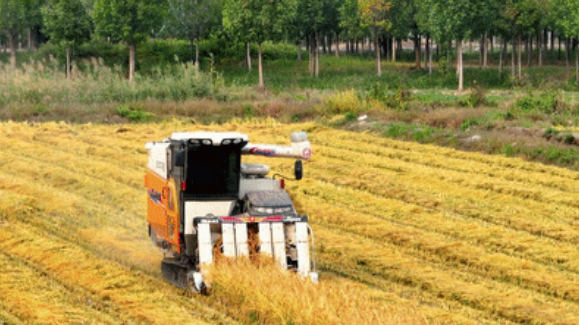
A farmer tends to a rice field in Zhangjiawo, a town in Tianjin's Xiqing district.
The thousands of mu of rice in the town of Zhangjiawo, in Tianjin's Xiqing district, have recently entered the harvesting period.
The "crab-field rice" planted in Zhoulizhuang, a village in Zhangjiawo, passed the review of the China Green Food Development Center in August, meeting the A-level standard for environmentally friendly cultivation, and obtaining the "Green Food Certificate".
According to Zhang Baoguo, who is in charge of Zhoulizhuang, over 400 mu of rice fields have been planted this year, with an expected harvest of around 500 kilograms per mu.
During the planting, local farmers focus on seed treatment and seedling cultivation, using organic fertilizers and employing agricultural, biological and physical pest control techniques to reduce the occurrence of diseases and pests.
The "rice-crab symbiosis" model has been adopted in the planting area, in which river crabs clear weeds in the field, consume pests, and provide ecological fertilizers for the rice, further reducing the use of pesticides and fertilizers. The rice, in turn, provides rich natural food and good habitat conditions for the growth of river crabs, forming a beneficial ecological cycle of mutually promoting growth.
The harvest of the high-quality rice from three villages in Zhangjiawo is expected to be completed by mid-October, with a total yield reaching 470,000 kilograms.





